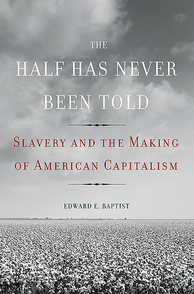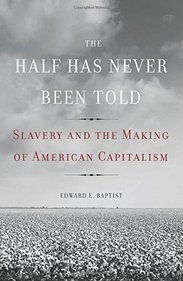
In many ways, Baptist's book brings to mind Dee Brown's "Bury my heart at Wounded Knee" in that it makes every attempt to put the African and African American experience right at the heart of the story. Each chapter for example begins and ends with the story of one or more people who were brought into slavery. The chapters in the book follow the different aspects of the slave body (hands, feet, heads, hearts, blood etc.) and the impact of slavery on each. The tale is both powerful and full of anger at the mistreatment of human beings, but also with the sanitized way in which the history of this period has been told. As such, the line of narrative is sometimes a bit harder to follow than in a standard history of slavery and its abolition. I have therefore decided to split this report on the book into a number of sections.
In this first section I want to explore Baptist's main lines of argument of how and why slavery, especially cotton slavery, expanded in the new southern and western territories of the USA after the Revolutionary War. Here Baptist argues, a whole new variety of slavery was born, a modern form of slavery, driven by capitalism and its flows of money, goods and people. I will return at another point to focus on the lives of the enslaved...



 RSS Feed
RSS Feed
